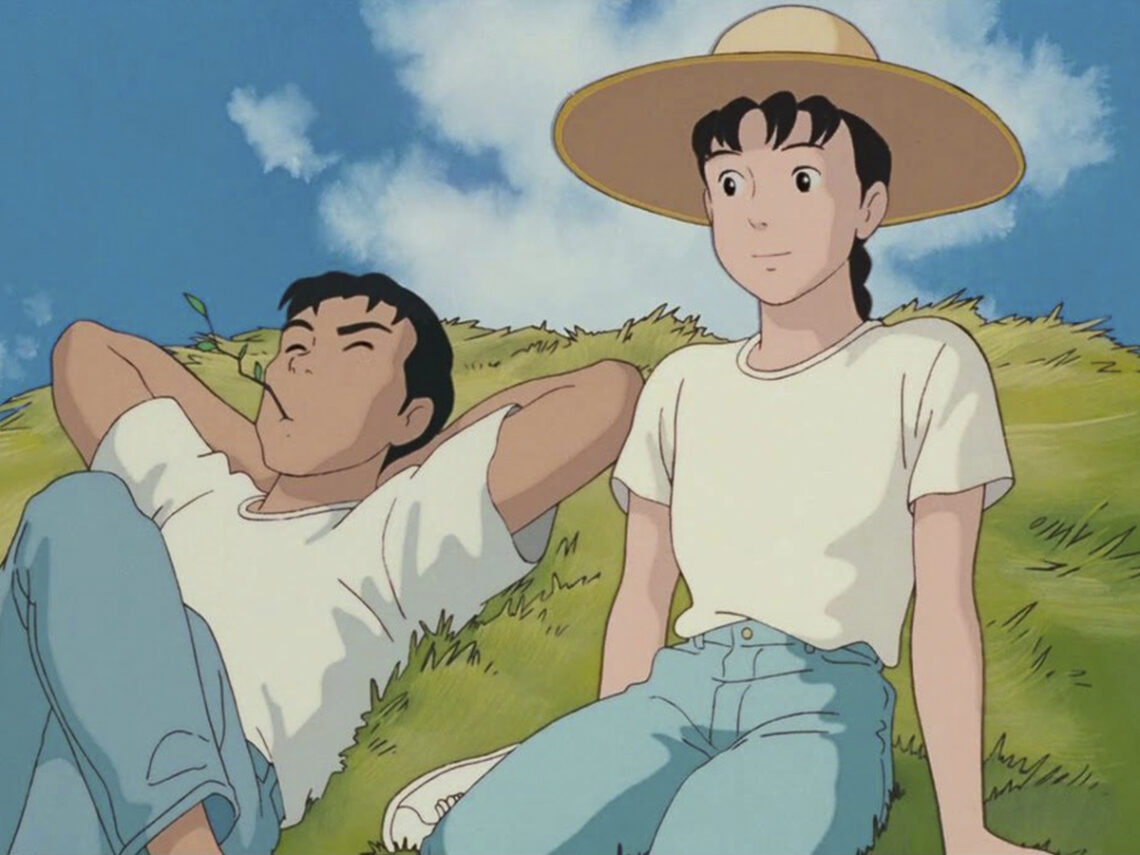There are many amazing movies on Netflix that sadly tend to get buried among the masses of different titles, failing to be spotlighted by the streaming service’s algorithm or specially crafted lists of recommendations. One of these is Only Yesterday, a lesser-known Studio Ghibli film that is certainly worth your time.
When you log onto Netflix, Studio Ghibli titles like Spirited Away, My Neighbour Totoro, Howl’s Moving Castle, and Ponyo are some of the first to appear under the ‘Anime Feature Films’ section. These are the company’s best-known movies, adored by millions of adults and children alike across the world. Indeed, Ghibli films have the ability to cross borders, connecting with a wide audience due to their powerful explorations of childhood, fantasy and family, but there’s more to them than just their most iconic titles.
Only Yesterday, directed by Isao Takahata, who co-founded Studio Ghibli with Hayao Miyazaki, Toshio Suzuki and Yasuyoshi Tokuma in 1985, receives much less attention than it deserves. Perhaps it’s because Takahata isn’t as well known as Miyazaki (although Takahata’s most popular work is arguably Pom Poko) that Only Yesterday is hardly named among the greatest Ghibli creations, but it’s equally as beautiful as the more popular titles.
The film was released in 1991 to critical acclaim, taking inspiration from Hotaru Okamoto and Yuko Tone’s manga of the same name. It follows a woman in her late twenties named Taeko Okajima who travels to the countryside, where she meets a man named Toshio, one of her brother-in-law’s distant relatives. During her trip away from the bustling streets of Tokyo, where she has lived her whole life, she reflects on her childhood, with the film frequently cutting between adult Taeko and her 10-year-old self.
It’s a nostalgic film that sees Taeko contemplate the decisions she’s made in her life. She considers whether she’s honoured her younger self and realises that she must do things that are fulfilling, such as engaging in romance and experiencing new places. Even though many of the memories that she reflects on are clouded with shame and embarrassment, she also thinks fondly of the version of her that used to be hopeful and found joy in the simplest things.
Wes Anderson has championed the movie, created in Ghibli’s gorgeous signature hand-drawn animation style. He once expressed his love for it, saying, “Only Yesterday—now this is Tahakata, this is Miyazaki’s sort of partner in Studio Ghibli. And this one’s very good because it’s sort of a grown-up story; it’s very interesting.” Anderson added, “Tahakata, he did Pom Poko also, that’s a good one.”
According to Anderson, “He has a bit of a different voice from Miyazaki, but they always helped each other with their films”. Tahakata started his career by working for Toei Animation, eventually becoming a director. His feature film debut was The Great Adventure of Horus, Prince of the Sun, released in 1968, which paved the way for his career in animation. After setting up Studio Ghibli with several of his friends, he directed Grave of the Fireflies, which was highly acclaimed.
Only Yesterday remains one of his most profound works – beautiful in its exploration of intimate moments, such as memories of subtle yet painful interactions with family members or friends, which have subconsciously guided Taeko into adulthood. Only away from the city, in a new environment surrounded by different people, does she discover what she really wants out of life.
